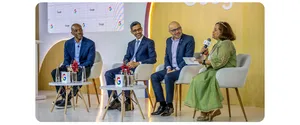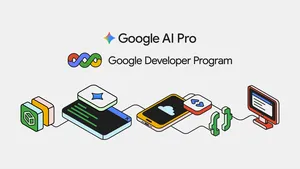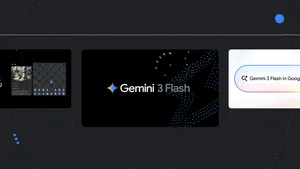8 years later: A world Go champion’s reflections on AlphaGo
Editor’s note: Lee Sae Dol is a professional Go player who played a now-famous public match against AlphaGo, Google DeepMind’s AI system, back in 2016.
As a world Go champion, I’d only ever played the game against other humans. That changed in 2016 when I played a five-match game of Go against AlphaGo, Google’s AI system. I admit, I underestimated just how powerful AI could be and ended up only winning one out of our five games together.
When I first got the invitation from Google to play against AlphaGo, I didn’t quite grasp how serious of a matter it was. I thought it would be an easy victory, and that this was a casual experiment. But once this game became public, I realized how big of a deal it was.
And I still remember how amazed I was at how brilliantly AlphaGo played, the moves it came up with. Go is a deeply complex strategic game — famously far more complicated than chess, with 1,000,000,000,000,000,000,000,000,000,000,000,000,000,000,000,000,000,000,000,000,000,000,000,000,000,000,000,000,000,000,000,000,000,000,000,000,000,000,000,000,000,000,000,000,000,000,000,000,000,000,000,000,000,000,000,000,000 possible board configurations. That means AlphaGo has to be creative, not just calculative.
Later, I learned that scientists had predicted AI wouldn’t reach that kind of capability for another decade. And this year marks the eight-year anniversary of the game I played against AlphaGo. In those eight years, AI has developed at an incredible speed. Go players around the world have now used AlphaGo to try to uncover new moves, new strategies and new ideas in this ancient game.
Lee Sae Dol shares his perspective on AI technology at Google Korea’s 20th anniversary in March 2024
Lee Sae Dol signing his autograph on a Go board in celebration of Google Korea’s 20th anniversary in March 2024
A note from Lee Sae Dol from his visit to Google Korea. The text reads: “Warmest congratulations on Google Korea’s 20th anniversary. I am eager to see how Google AI continues to shape a brighter future for humanity. 2024.3.19 Lee Sae Dol” .
After those matches, Go became even more popular in Korea. And AlphaGo itself has now completely changed how we set game records by setting the bar higher. Teaching Go in an AI era looks very different from the pre-AlphaGo world, because students can learn far more by studying games that have been played by AI.
I believe that humans can partner with AI and make great progress. As long as we can set clear principles and standards for it, I am quite optimistic about the future of AI technology in our daily lives.






